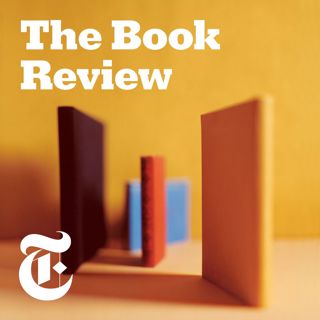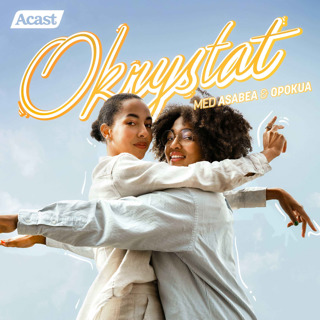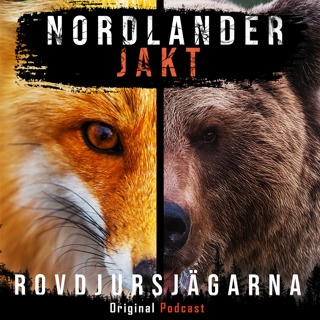
'The Correspondent' Author Virginia Evans On Her Breakout Year
Virginia Evans’s debut novel, “The Correspondent,” was published last April and became one of the publishing industry’s heartwarming champions of 2025: a slow-burn success story that gathered momentum over the summer and fall and finally topped the New York Times hardcover best-seller list in December. For Evans, who had written and failed to sell seven previous novels, the book’s popularity has felt magical, as she explains to host Gilbert Cruz on this week’s podcast.“I went on a kind of a brief book tour in the fall, meeting hundreds of people,” Evans says, “and … different bookstores were starting to say, this is becoming a thing, we can’t keep it in the store. We keep running out of stock. And then they were going back, reprint after reprint. So then I started to think, oh, it’s getting bigger. But I think, I just didn’t have a context. I still don’t understand publishing. So I thought every step of the way was the mountaintop. I keep getting a new mountaintop.” Subscribe today at nytimes.com/podcasts or on Apple Podcasts and Spotify. You can also subscribe via your favorite podcast app here https://www.nytimes.com/activate-access/audio?source=podcatcher. For more podcasts and narrated articles, download The New York Times app at nytimes.com/app.
9 Jan 40min

Book Club: Let’s Talk About ‘What We Can Know’
Ian McEwan’s latest novel, “What We Can Know,” is many things at once: It’s a science fiction imagining of a future world devastated by climate catastrophe; it’s a literary mystery about a scholar’s search for a long-lost poem; it’s a deep dive into complicated marriages; and it’s a meditation on how the past lingers and how history morphs with time.“It’s the best thing McEwan has written in ages,” our critic Dwight Garner wrote in his review. “It’s a sophisticated entertainment of a high order.”In this episode of the Book Review Book Club, the host MJ Franklin discusses “What We Can Know” with his colleagues Sarah Lyall (who profiled McEwan for the Book Review this year) and Leah Greenblatt. You can follow along, and add your own comments to the discussion here.Other Books mentioned in this discussion:“Atonement,” “Saturday,” “On Chesil Beach,” “The Comfort of Strangers,” “The Cement Garden” and “Enduring Love,” by Ian McEwan“Fleishman Is in Trouble,” by Taffy Brodesser-Akner“Fates and Furies,” by Lauren Groff“Marston Meadows: A Corona for Prue,” by John Fuller“How the Word Is Passed,” by Clint Smith“The Stranger’s Child,” “The Line of Beauty” and “Our Evenings,” by Alan HollinghurstWe would love to hear your thoughts about this episode, and about the Book Review’s podcast in general. You can send them to books@nytimes.com. Subscribe today at nytimes.com/podcasts or on Apple Podcasts and Spotify. You can also subscribe via your favorite podcast app here https://www.nytimes.com/activate-access/audio?source=podcatcher. For more podcasts and narrated articles, download The New York Times app at nytimes.com/app.
27 Dec 202551min

What Did 2025 Mean for Books?
From political tell-alls to the continued triumph of romantasy novels, it’s been an eventful year in the publishing world. On this week’s episode, host MJ Franklin talks with his Book Review colleagues Alexandra Alter, Tina Jordan and John Maher about the biggest book stories and most significant reading trends of 2025.Correction: An earlier version of this podcast referred incorrectly to an arts grant from the Mellon Foundation. The $50 million initiative, launched by Mellon, is a collaborative effort with six other foundations and is intended to support nonprofit literary organizations across a range of genres and forms; it is not solely intended to support poetry. Subscribe today at nytimes.com/podcasts or on Apple Podcasts and Spotify. You can also subscribe via your favorite podcast app here https://www.nytimes.com/activate-access/audio?source=podcatcher. For more podcasts and narrated articles, download The New York Times app at nytimes.com/app.
19 Dec 202547min

Our Book Critics on Their 2025 in Reading
Here we are in mid-December, which means that along with all of the other year-end lists we produce and avidly consume at this time each year, The New York Times Book Review's staff critics are also looking back on everything they read in 2025, and toasting the books that have stayed with them.On this episode, host Gilbert Cruz talks with Dwight Garner, Alexandra Jacobs and Jennifer Szalai about their standout fiction and nonfiction of the past 12 months.Books mentioned:"What We Can Know," by Ian McEwan"Flesh," by David Szalay"The Loneliness of Sonia and Sunny," by Kiran Desai"Playworld," by Adam Ross"When the Going Was Good," by Graydon Carter"I Regret Almost Everything," by Keith McNally"When All the Men Wore Hats," by Susan Cheever"Notes to John," by Joan Didion"A Flower Traveled in My Blood," by Haley Cohen Gilliland"38 Londres Street," by Philippe Sands"Wild Thing," by Sue Prideaux"Crumb: A Cartoonist's Life," by Dan Nadel"Class Clown," by Dave Barry"Electric Spark: The Enigma of Dame Muriel," by Frances Wilson"Flagrant, Self-Destructive Gestures: A Biography of Denis Johnson," by Ted Geltner"Shadow Ticket," by Thomas Pynchon"Selected Letters of John Updike," edited by James Schiff"Troublemaker: The Fierce, Unruly Life of Jessica Mitford," by Carla Kaplan"More Everything Forever, AI Overlords, Space Empires, and Silicon Valley's Crusade to Control the Fate of Humanity," by Adam Becker Subscribe today at nytimes.com/podcasts or on Apple Podcasts and Spotify. You can also subscribe via your favorite podcast app here https://www.nytimes.com/activate-access/audio?source=podcatcher. For more podcasts and narrated articles, download The New York Times app at nytimes.com/app.
12 Dec 202536min

The 10 Best Books of 2025
All year long, the staff of The New York Times Book Review conducts a running discussion over what belongs on its year-end Top 10 list. In this week’s episode, host Gilbert Cruz gathers a group of fellow Book Review editors to talk about the most exciting fiction and nonfiction of the year. Here are the books discussed in this week’s episode:Fiction“The Loneliness of Sonia and Sunny,” by Kiran Desai“Angel Down,” by Daniel Kraus“The Sisters,” by Jonas Hassen Khemiri“The Director,” by Daniel Kehlmann“Stone Yard Devotional,” by Charlotte WoodNonfiction“A Marriage at Sea,” by Sophie Elmhirst“Wild Thing,” by Sue Prideaux“Mother Emanuel,” by Kevin Sack“There Is No Place for Us," by Brian Goldstone“Mother Mary Comes to Me,” by Arundhati Roy Subscribe today at nytimes.com/podcasts or on Apple Podcasts and Spotify. You can also subscribe via your favorite podcast app here https://www.nytimes.com/activate-access/audio?source=podcatcher. For more podcasts and narrated articles, download The New York Times app at nytimes.com/app.
2 Dec 20251h 18min

Book Club: Let's Talk About 'Hamnet'
History has not graced us with many details about Shakespeare as a person, but we do know that he and his wife had three children, including a son named Hamnet who died at the age of 11 in 1596, four years before Shakespeare went on to write his great tragedy “Hamlet.”Maggie O’Farrell’s novel “Hamnet” — one of the Book Review’s 10 Best Books of 2020, and the source of Chloé Zhao’s new movie of the same name — starts from those scant facts, and spins them into a powerful story of grief, art and family steeped in the textures of late-16th-century life.In this episode of the Book Review Book Club, host MJ Franklin discusses “Hamnet” with his colleagues Leah Greenblatt, Jennifer Harlan and Sarah Lyall. Other works mentioned in this podcast:“Hamlet,” “King Lear,” “Macbeth,” “The Winter’s Tale,” by William Shakespeare“Little Women,” by Louisa May Alcott“Grief Is the Thing With Feathers,” by Max Porter“Lincoln in the Bardo,” by George Saunders“Fi,” by Alexandra Fuller“Things In Nature Merely Grow,” by Yiyun Li“The Accidental Tourist,” by Anne Tyler“Will in the World” and “Dark Renaissance,” by Stephen Greenblatt“Gabriel,” by Edward Hirsch“Once More We Saw Stars,” by Jayson Greene“The Dutch House,” by Ann Patchett Subscribe today at nytimes.com/podcasts or on Apple Podcasts and Spotify. You can also subscribe via your favorite podcast app here https://www.nytimes.com/activate-access/audio?source=podcatcher. For more podcasts and narrated articles, download The New York Times app at nytimes.com/app.
28 Nov 20251h 2min

Welcome to Literary Award Season
Literature isn’t a horse race. Taste is subjective, and artistic value can’t be measured in terms of “winners" and “losers.”That doesn’t mean it’s not fun to try.The book world’s awards season officially kicked off on Oct. 9, when the Hungarian novelist Laszlo Krasznahorkai won the 2025 Nobel Prize, and continued this month when the Booker Prize in England went to the novel “Flesh,” by the British writer David Szalay (also of Hungarian descent, as it happens). Then this week, five National Book Award winners were crowned in various categories at a ceremony in New York.On this episode of the podcast, the host MJ Franklin talks with his fellow Book Review editors Emily Eakin, Joumana Khatib and Dave Kim about the finalists, the winners and what this year’s big book awards might tell us about the state of literature in 2025.We would love to hear your thoughts about this episode, and about the Book Review’s podcast in general. You can send them to books@nytimes.com. Subscribe today at nytimes.com/podcasts or on Apple Podcasts and Spotify. You can also subscribe via your favorite podcast app here https://www.nytimes.com/activate-access/audio?source=podcatcher. For more podcasts and narrated articles, download The New York Times app at nytimes.com/app.
22 Nov 202546min

Nicholas Boggs on Writing a James Baldwin Biography
Nicholas Boggs’s “Baldwin: A Love Story,” is many things at once. It’s a comprehensive biography of James Baldwin. It’s a nimble excavation of Baldwin’s work, filled with astute literary analysis of his books and prose. And, most pressingly, it’s an argument for a new critical framework to understand Baldwin through the lens of love. The biography is structured around Baldwin’s relationships with a series of men — relationships that, as Boggs outlines, shaped Baldwin’s life and writing in crucial ways. Boggs joins MJ Franklin on this week's episode to talk about his new book.Other works mentioned in this discussion:Zadie Smith’s essay “Conscience and Consciousness: A Craft Talk for the People and the Person,” from her new collection “Dead and Alive”“James Baldwin: A Biography,” by David Leeming“Little Man, Little Man: A Story of Childhood,” by James Baldwin, illustrated by Yoran Cazac, edited by Nicholas Boggs and Jennifer DeVere Brody“Goodbye Days,” by Jeff Zentner“Virginia Woolf,” by Hermione Lee Subscribe today at nytimes.com/podcasts or on Apple Podcasts and Spotify. You can also subscribe via your favorite podcast app here https://www.nytimes.com/activate-access/audio?source=podcatcher. For more podcasts and narrated articles, download The New York Times app at nytimes.com/app.
14 Nov 202536min





















